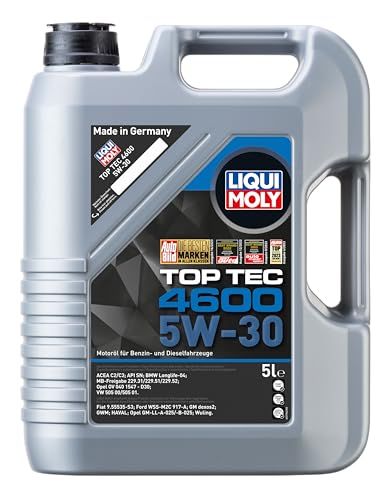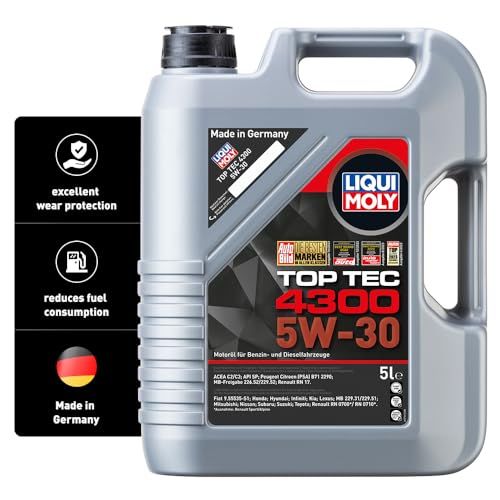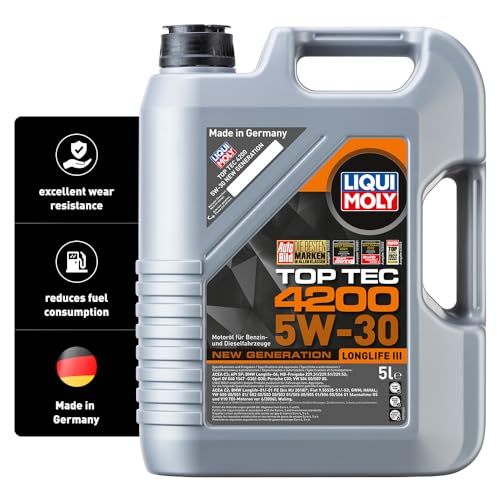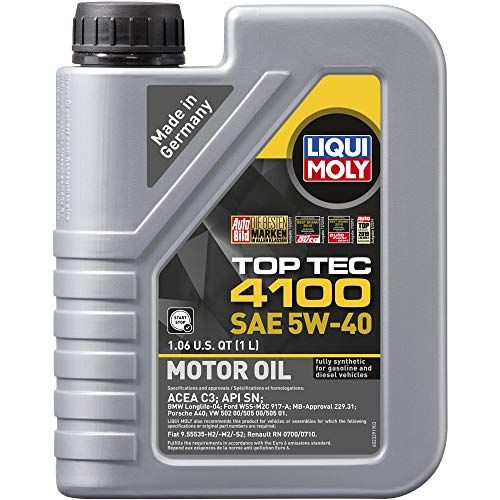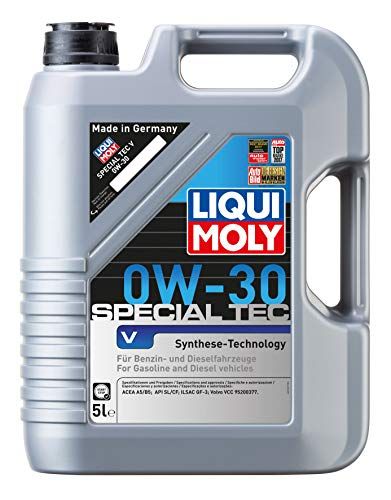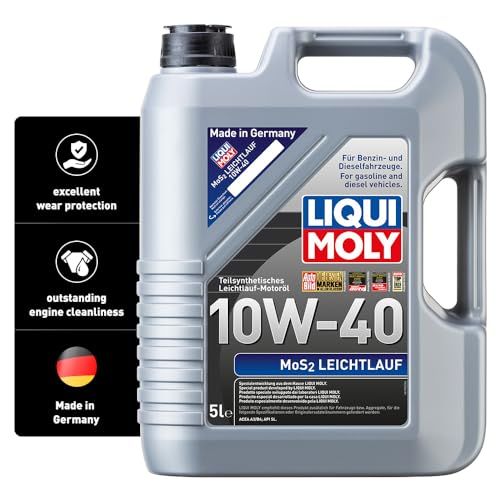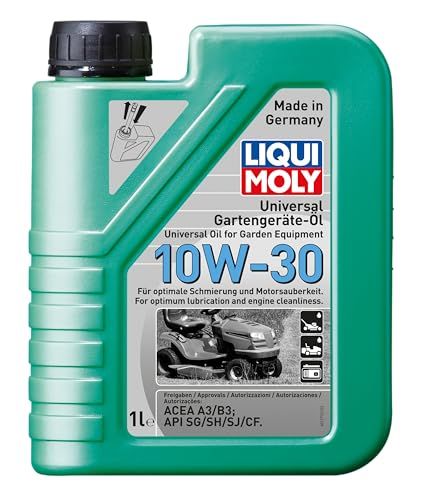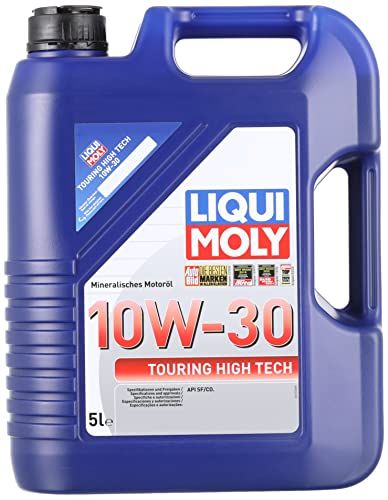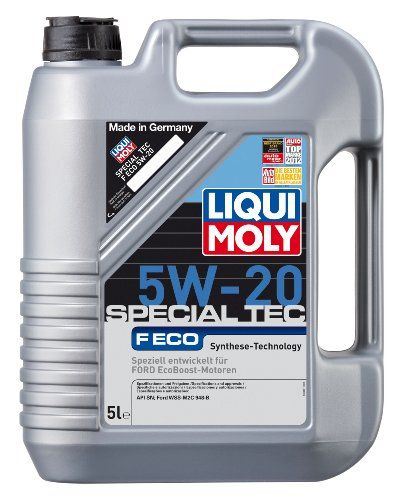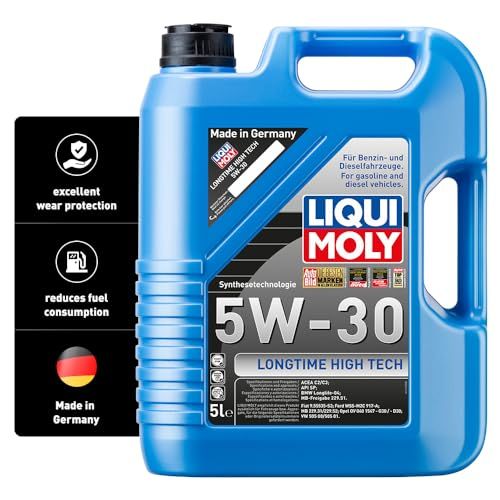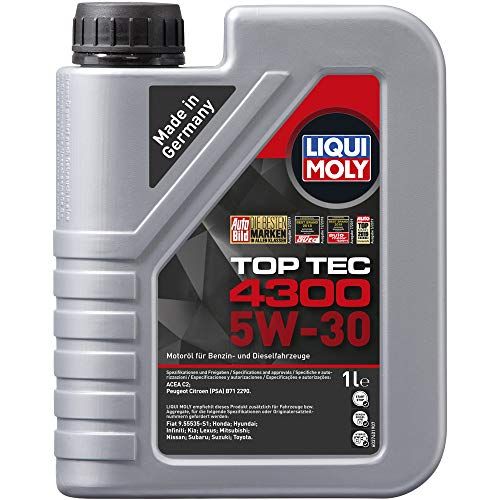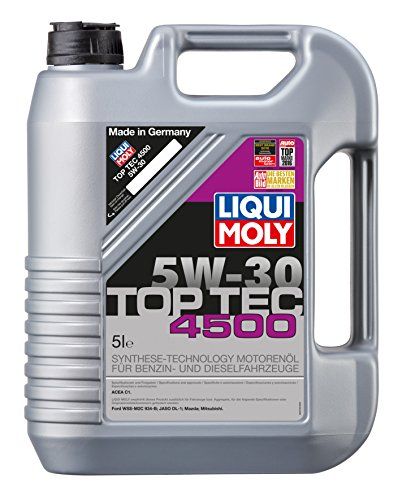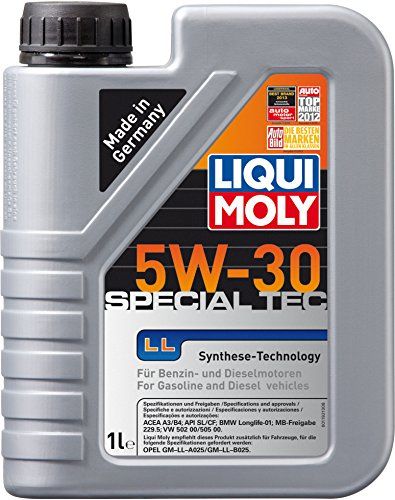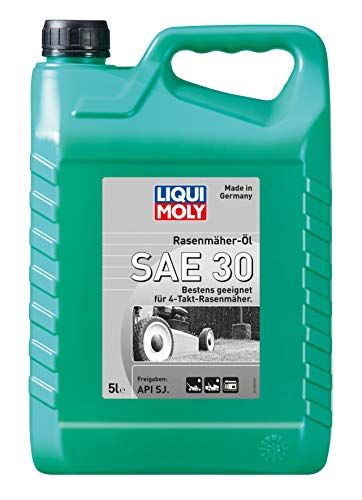Categories
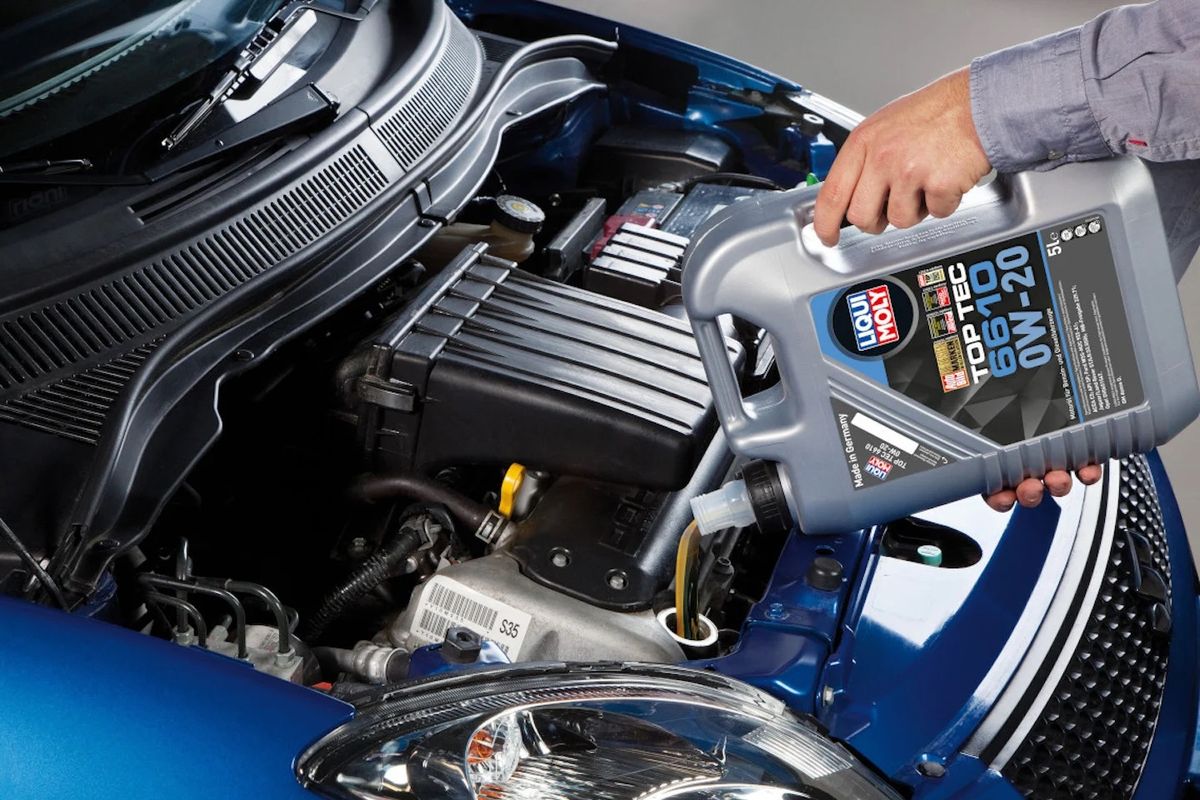
Liqui Moly is a German company that specializes in automotive chemicals and lubricants. Founded in 1957, it has grown to become one of the leading lubricant brands in Europe and is now available in over 100 countries worldwide.
Liqui Moly is known for producing high-quality oils and additives that meet and often exceed industry specifications set by organizations like API and ACEA. Their products are designed to optimize engine performance and provide maximum protection against wear, deposits, and corrosion. The company focuses heavily on research and development to create innovative formulas using top-grade base oils and additives.
In addition to motor oils, Liqui Moly offers a wide range of other automotive chemicals including fuel additives, greases, pastes, sprays and more. Their product line caters to both individual DIY users as well as professional workshops. The distinctive red, yellow and black Liqui Moly packaging makes their products easily recognizable.
Overview of their oil products and key features
Liqui Moly offers motor oils for both gasoline and diesel engine passenger vehicles. Their product range includes mineral, semi-synthetic and fully synthetic engine oils in a variety of viscosity grades.
Some of their most popular and highly rated oils include:
Top Tec 4100 5W-40 - a fully synthetic low friction oil that meets the latest API and ACEA specs. It provides rapid oil delivery at low temps while maintaining stability at high temps. Suitable for many European vehicles.
Leichtlauf High Tech 5W-40 - another fully synthetic low friction oil designed for longer drain intervals and fuel economy. Meets API SN Plus specs and is backwards compatible.
Synthoil High Tech 5W-40 - a part-synthetic oil blend that provides wear protection and engine cleanliness. Meets API SN specs and suitable for many Asian and American vehicles.
Special Tec AA 5W-30 - advanced fully synthetic oil for Audi/VW vehicles requiring this OEM oil spec for extended drain intervals. Offers high fuel economy.
Key features across the Liqui Moly oil range include:
Meeting and exceeding industry standards for performance, protection and viscosity
Rapid oil circulation and optimal lubrication at low and high temperatures
Keeping engines clean with low deposits and sludge build-up
Improved fuel economy from low friction formulations
High shear stability and oxidation resistance for long-term protection
Protecting against wear, corrosion and oil aging
Liqui Moly oils are designed to provide maximum engine performance, efficiency and longevity. The oils are field tested and used by car workshops, race teams, and car enthusiasts who value quality German engineering.
Liqui Moly's Range of Engine Oil Viscosities
Engine oil viscosity refers to how thick or thin the oil is at certain temperatures. The viscosity grade is shown with a two-number label, such as 5W-30, on oil bottles and packages. The first number followed by the "W" stands for the oil's properties at low temperatures or its "winter" grade. The second number refers to its viscosity at high engine operating temperatures.
Liqui Moly offers engine oils in different viscosity grades to match OEM specifications for various vehicle makes and models. Some of their popular viscosity grades include:
0W-20 - A very thin, fuel-efficient oil for many newer gasoline engines. Provides easy cold starting.
5W-30 - A common grade recommended for many modern vehicles. Flows well when cold but thickens with heat.
10W-30 - A slightly thicker oil that may be specified for older engines or high mileage vehicles.
10W-40 - Provides a thicker film for better protection at high temperatures. Used in many diesel engines.
15W-40 - A versatile viscosity grade able to cope with hot and cold extremes. Often used in commercial diesel engines.
20W-50 - A thicker oil that maintains viscosity at very high temperatures. May be required by some performance gasoline engines.
Liqui Moly uses advanced formulations tailored for each viscosity grade. Their oils provide excellent cold flow, high temperature protection, and stable viscosity across temperature ranges. This results in better lubrication and engine protection compared to conventional oils.
Benefits of Liqui Moly Synthetic Motor Oils
Synthetic motor oils like those from Liqui Moly offer several advantages over conventional mineral oils for modern engines.
Difference Between Synthetic and Mineral Oils
Synthetic oils are chemically engineered in a laboratory to achieve specific properties. They have higher resistance to oxidation and breakdown, which allows them to last longer. Synthetic oils also flow better at low temperatures compared to mineral oils.
Benefits of Synthetic Oil
Increased engine protection - Synthetics provide a thicker oil film to better protect critical engine parts.
Improved high-temperature stability - Synthetics withstand heat better and reduce sludge buildup.
Enhanced cold-flow properties - Synthetics flow faster in cold weather for easier starting.
Extended oil change intervals - The advanced durability of synthetics allows going longer between oil changes.
Better fuel efficiency - The low friction and viscosity of synthetics can improve engine efficiency.
Liqui Moly Synthetic Oil Offerings
Liqui Moly offers a wide range of synthetic motor oils formulated for various types of engines and driving conditions:
Top Tec 4100 5W-40 - Fully synthetic oil ideal for many European vehicles.
Leichtlauf High Tech 5W-40 - Low friction synthetic oil designed for fuel efficiency.
Synthoil Premium 5W-40 - Group IV/PAO based oil for ultimate engine protection.
Liqui Moly synthetics utilize premium base oils and advanced additives chosen by their chemists in Germany. Drivers can trust Liqui Moly to provide quality synthetic oils tailored to your vehicle's needs.
Purpose of Oil Additives
Oil additives serve an important purpose in modern engines by providing extra protection and performance. Liqui Moly uses a range of specially formulated additives to enhance the properties of its motor oils.
Some key types of additives found in Liqui Moly motor oils include:
Detergents - Help keep engine internals clean by preventing deposit build-up. Detergents disperse oil sludge and residues so they can be drained out.
Dispersants - Also help suspend contaminants in the oil to be drained out. They prevent sludge from coagulating.
Anti-wear additives - Form protective layers on metal surfaces to reduce friction and wear. Important for protecting camshafts, pistons, bearings.
Rust and corrosion inhibitors - Protect engine parts from corrosion damage from moisture, acids.
Antioxidants - Help prevent oil from oxidizing and breaking down prematurely. Maintain oil's viscosity and lubricity.
Friction modifiers - Lower friction on certain surfaces. Can provide fuel economy benefits.
Pour point depressants - Allow oil to flow more easily at lower temperatures.
The right additive package allows Liqui Moly oils to better resist breakdown while protecting critical engine components.
Specific Oil Needs for Motorcycles
Motorcycles have different lubrication needs compared to cars and trucks. Here are some key considerations for motorcycle oil:
Motorcycle engines tend to run hotter and at higher RPMs than car engines. This puts more stress on the oil, requiring formulations that resist viscosity breakdown and provide excellent wear protection. Liqui Moly motorcycle oils use high quality base stocks and additives to meet these demands.
Motorcycles tend to have separate engine, transmission, and primary case oils. Each component requires oil meeting specific friction and viscosity properties. Liqui Moly offers oils tailored for each motorcycle fluid reservoir.
Wet clutch systems are common on motorcycles. These clutch systems bathe the clutch plates in engine oil, requiring specialized friction reducing additives. Liqui Moly oils for wet clutch bikes provide smooth clutch engagement without slippage.
Air-cooled motorcycles lack radiator-based cooling systems. This increases the importance of oil helping to dissipate heat. Liqui Moly motorcycle oils feature thermally stable formulations to maintain protection in air-cooled bikes.
Motorcycle engines produce more contaminants from blow-by gases and combustion soot. Liqui Moly oils use shear-stable polymers to keep soot dispersed and provide extended drain intervals.
With their expertise and experience in powersports lubrication, Liqui Moly offers a full range of motorcycle oils meeting the unique needs of bike engines and transmissions. Riders can trust Liqui Moly to provide outstanding protection, performance, and peace of mind.
Unique needs for diesel engine oil
Diesel engines have different needs compared to petrol engines when it comes to engine oil. This is due to fundamental differences in how diesel and petrol engines work.
Some key considerations for diesel engine oil include:
Higher operating temperatures - Diesel engines tend to run hotter than petrol engines, putting more thermal stress on the oil. Diesel specific motor oils are designed to withstand higher heat.
Contamination resistance - The injection process in diesel engines can cause more soot and deposits to form in the oil. Oils for diesel need to be robust against this contamination.
Shear stability - Diesel oil needs to maintain its viscosity grade for longer in order to cope with the demands of a diesel motor. Special viscosity improvers help with shear stability.
Detergent/dispersant additives - More detergents are needed to keep diesel engines clean and disperse soot in the oil. This prevents thickening of the oil over time.
Liqui Moly offers a range of diesel specific motor oils designed for both passenger car and commercial vehicle diesel engines. Key products include:
Top Tec 4100 5W-30 - Fully synthetic low ash oil for diesel particulate filters. Keeps DPFs clean.
Top Tec 4200 5W-30 - Minimizes wear and oil thickening in Euro 6 diesel engines.
Top Tec 4600 5W-30 - For modern diesel engines with exhaust after treatment. Excellent protection against soot.
So in summary, Liqui Moly diesel oils are formulated to withstand the unique demands of diesel engines compared to petrol engines. This includes higher heat resistance, soot handling, shear stability, and detergency.
Considerations for classic car oil
Classic and vintage cars have different lubrication needs compared to modern vehicles. Using the wrong oil can lead to increased wear, sludge build-up, and engine damage over time. Liqui Moly offers a range of oils specifically formulated for classic and older engines.
When selecting oil for a classic car, it's important to consider the operating conditions and design of the engine. Most vintage engines are lower compression and run at lower temperatures compared to modern engines. The oil needs to flow well when cold but also maintain film strength at operating temperature.
Many older engines also have wider bearing clearances so the oil needs to maintain adequate pressure. Using a multi-grade oil helps provide protection across a wide temperature range.
Detergent and dispersant additives found in modern oils can be too harsh for some older engines as well, leading to seal deterioration and leaks over time. Liqui Moly classic oils use milder additive packages to prevent this.
Zinc levels are also important for protecting vintage engine components but need to be balanced to avoid damaging catalytic converters in collector cars. Liqui Moly oils are carefully formulated with optimal zinc for older flat tappet cams while remaining emissions compliant.
With the right oil matched to your specific classic or vintage engine, you can keep it running smoothly for many more miles down the road. Liqui Moly's range provides excellent lubrication and protection tailored for older design needs.
Recommended Oil Change Intervals
Liqui Moly provides guidance on recommended oil change intervals for a variety of vehicles. Intervals can range from 5,000 miles/8,000km to 10,000 miles/16,000km or more, depending on the vehicle make, model, year, and engine.
Some key factors that determine optimal oil change intervals include:
Vehicle age and mileage - Older vehicles and high-mileage engines require more frequent oil changes. Newer vehicles can often go longer between changes.
Driving conditions - Vehicles used for towing, hauling heavy loads, extensive idling, or short trips require more frequent oil changes. Cars driven primarily on the highway in ideal conditions can have longer intervals.
Climate and weather - Extreme hot or cold temperatures, and dusty conditions cause oil to break down faster. More frequent changes are recommended.
Engine type - Turbocharged, supercharged, and high-performance engines need oil changes more often to preserve engine life.
Liqui Moly oils are formulated for extended performance and protection, so relying on their guidance for oil change intervals can help optimize engine life. Consult your owner's manual, however, for the intervals recommended specifically for your vehicle.
Importance of Oil Filters
Oil filters play a crucial role in engine health and performance. They help remove contaminants and particles from the oil to keep it clean. Over time, engine oil picks up metal shavings, dust, dirt and carbon deposits which can damage internal components if left to circulate.
Oil filters use a combination of filter media to trap and hold these impurities. As oil passes through, contaminants are captured while clean oil flows back into the engine. The filtration process extends the life of oil while protecting precision parts from unnecessary wear.
Regular oil and filter changes are key to reducing friction, preventing sludge build-up and maintaining proper oil pressure. Quality filters with efficient flow rates ensure full oil circulation for cooling and lubrication. Premium brands like Liqui Moly utilize advanced designs and materials to provide superior filtration. Their oil filters can withstand high temperatures and pressures while trapping more contaminants between changes.
Proper oil filter selection depends on the vehicle make and model. Using the manufacturer's recommended filter ensures optimal fit, flow rate and filtration for the engine. Liqui Moly offers a full range of OE replacement filters meeting strict specifications for many European vehicles. Their filters provide trusted protection recommended by mechanics.
Why Choose Liqui Moly Oil?
Liqui Moly offers a wide range of high-quality oils for both passenger cars and heavy-duty vehicles. Here are some of the key reasons to choose Liqui Moly oils:
German Engineering: Liqui Moly oils are engineered and produced in Germany to meet the highest standards. The company works closely with leading OEMs to develop oils that perfectly match vehicle requirements.
Superior Protection: Liqui Moly oils provide excellent wear protection, keep engines clean, and maintain high performance. Special additives protect against deposits and corrosion.
Suitable for All Vehicles: There is a Liqui Moly oil suitable for practically any vehicle on the road, from everyday cars to high-performance vehicles. Oils meet or exceed all major OEM specifications.
Trusted Brand: Liqui Moly is a leading global oil brand with over 60 years of experience. Its oils are trusted by professional mechanics, race teams, and vehicle enthusiasts worldwide.
Great Value: While premium in quality, Liqui Moly oils are competitively priced to provide great value to consumers. Different formulations match different budget needs.
Liqui Moly invests heavily in R&D and advanced additive technology to make oils that stand out in terms of engine protection, longevity, and performance. Drivers choosing Liqui Moly get German-engineered oils they can trust for the long haul.
Liqui Moly Oil comparison
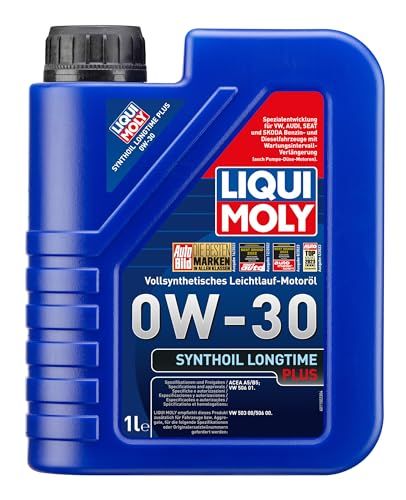 | 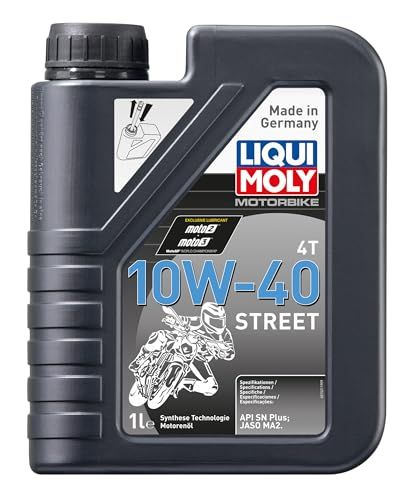 | 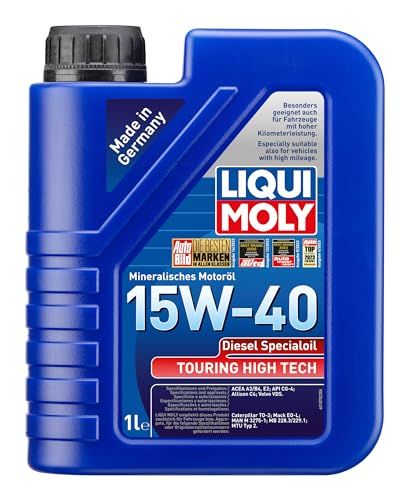 | 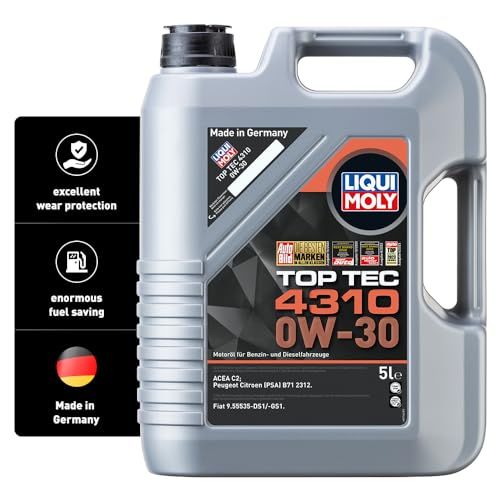 | 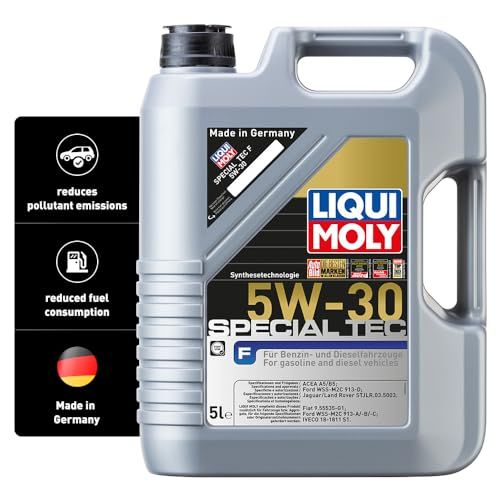 | |
|---|---|---|---|---|---|
| Model | Liqui Moly Synthoil Longtime Plus 0W-30 - 1 Litre | Liqui Moly Racing 4-Stroke 10W-40 - 1 Litre | Liqui Moly Touring High Tech Diesel Specialoil 15W-40 - 1 Litre | Liqui Moly Top Tec 4310 0W-30 - 5 Litres | Liqui Moly Special Tec F 5W-30 - 5 Litres |
| Brand | Liqui Moly | Liqui Moly | Liqui Moly | Liqui Moly | Liqui Moly |
| Item Model Number | 1150 | 1521 | 1070 | 2362 | 3853 |
| Item Weight | 855 g | 860 g | 870 g | 4.22 kg | 4.28 kg |
| Manufacturer | Liqui Moly GmbH | Liqui Moly GmbH | Liqui Moly GmbH | Liqui Moly | Liqui Moly |
| Viscosity | 0W-30 | 10W-40 | 15W-40 | 0W-30 | 5W-30 |
| Flash Point | 210 Degrees Celsius | 230 Degrees Celsius | 230 Degrees Celsius | - | 220 Degrees Celsius |
| Vehicle Service Type | Car | Vehicle specific | Car | Car | Car |
| Price | £37 | £17.66 | £24.64 | £73.03 | £63.9 |
FAQ
What is Liqui Moly?
Liqui Moly is a German company that manufactures premium quality motor oils, additives and car care products. Their products are designed to optimise engine performance and provide long-lasting protection.
Where can I buy Liqui Moly products in the UK?
You can find Liqui Moly products at many retailers including Halfords, Euro Car Parts, Opie Oils and online at Amazon. Many independent garages and motor factors also stock Liqui Moly oils and additives.
Why are Liqui Moly oils better than regular oils?
Liqui Moly oils contain a higher concentration of additives compared to regular motor oils. These additives help keep engines clean, reduce wear and friction, stabilise viscosity and neutralise acids. This results in improved performance, fuel economy and engine life.
What types of Liqui Moly oils are available?
Liqui Moly offers engine oils, transmission fluids, additives and care products. Their oils come in mineral, semi-synthetic and fully synthetic grades to suit different engine requirements. Popular ranges include Top Tec, Leichtlauf and MoS2.
How often should I change Liqui Moly oil?
You should follow the vehicle manufacturer's recommendations for oil change intervals. Most modern cars can go 10,000+ miles between oil changes when using fully synthetic Liqui Moly oils. Shorter intervals may be needed for heavy use like towing or track driving.
Is Liqui Moly oil worth the extra cost?
While Liqui Moly oils cost more than average oils, the premium formula and additives help protect your engine over the long term. This can save on repairs and maintenance costs. Less wear also means improved fuel economy. So the extra cost is worth it for the benefits.
Can I mix Liqui Moly with other motor oils?
It is not recommended to mix Liqui Moly with other brands. The blend may not be optimal and you’ll lose the full benefits of Liqui Moly's additive package. Stick with Liqui Moly when topping up or changing oil.
Are Liqui Moly oils suitable for older engines?
Yes, Liqui Moly oils are perfectly suited for use in older engines. The oils exceed industry standards and provide excellent wear protection, viscosity stability and deposit control to prolong engine life. Older engines can benefit from Liqui Moly's high-quality formula.
Do I need to use Liqui Moly additives with their oils?
Liqui Moly oils already contain a comprehensive additive package. Additional additives are only required in very specific cases like racing applications. For everyday driving, the oils have all the additives your engine needs. But you can use their other car care products.
Where can I find the product specification sheets for Liqui Moly oils?
You can download technical data sheets for all Liqui Moly products on their website. The sheets have details on specifications, approvals, applications and instructions for each oil and additive to help you choose the right one.
